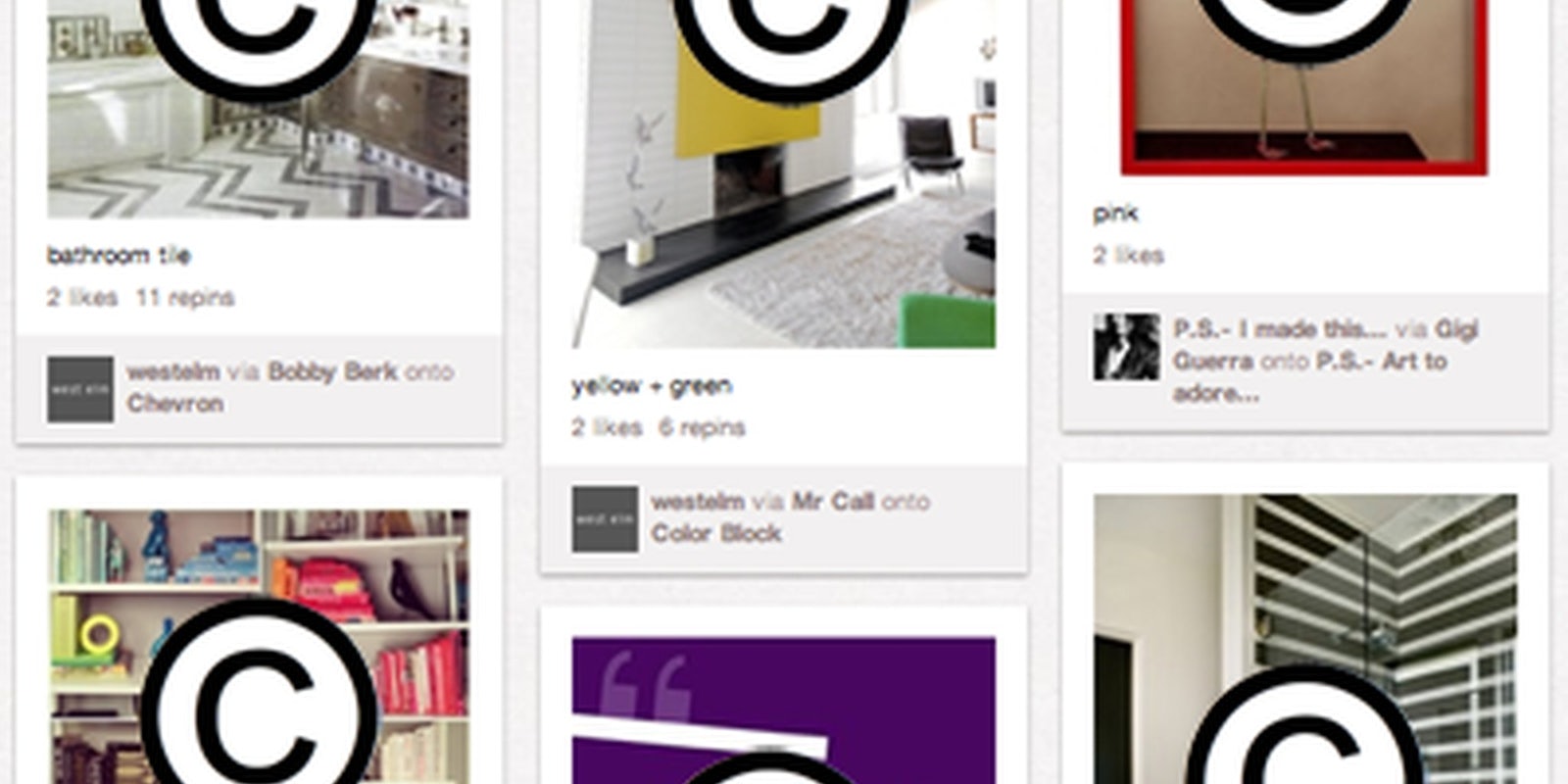Is Pinterest even legal?
The image-sharing platform allows users to contribute content from all over the Internet— regardless of who holds the copyright on the content.
Luckily, Pinterest told the Wall Street Journal that copyright problems “haven’t been a significant issue so far.”
Through an automatic pinning interface, Pinterest encourages users to link and attribute pins. But that might not be enough.
Media law attorney Itai Maytal told Business Insider that “even if you link and attribute, that does NOT absolve you of the fact that you took someone else’s work and re-appropriated it.”
Pinterest’s Terms of Use confirm this. The terms permit users to legally pin any image they like—as long as they are the sole owner of it:
“You acknowledge and agree that you are solely responsible for all Member Content that you make available through the Site, Application and Services.”
Pinterest’s Pin Etiquette, however, overtly discourages only pinning images you own:
“[T]ry not to use Pinterest purely as a tool for self-promotion.”
As exasperated blogger Alexandra Asher Sears wrote: “Do not self promote. Do not pin content that you don’t own the copyright of. Am I drunk?”
Pinterest has yet to solve the problem, but has come forward with one solution for copyright holders—make your content unpinnable. The site has just added a new addendum to its Help page that offers instructions on how to insert a small piece of code to prevent images from being pinned.
Will websites willingly use this code and keep their content off of a site that drives more traffic than Google+, LinkedIn, and YouTube combined? The next few weeks will show what copyright holders value most.


